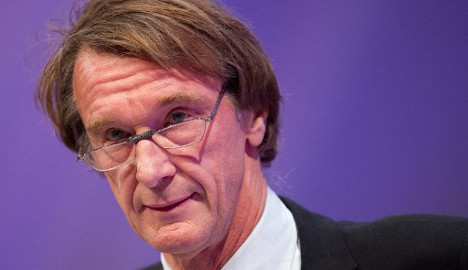"Ineos will acquire BASF's 50 percent share in Styrolution," the company said in a statement.
It said shareholders had agreed to an option of purchasing the remaining shares in Styrolution in 2011, when the two partners created the venture combining their global styrenics businesses.
The transaction, which still needs a green light from a variety of antitrust authorities, will cost Ineos 1.1 billion euros ($1.5 billion), the company said.
"Styrolution has fulfilled its promise as a globally competitive business that competes effectively with large-scale producers from Asia and the Middle East," said Jim Ratcliffe, chairman of INEOS Capital.
"We are pleased to bring Styrolution fully into the Ineos family," he added.
Styrolution, currently the world's leading styrenics supplier, will continue operating as an independent company until the deal was finalised, likely at the end of this year, the company said.
And after the deal goes through, the styrene maker will "run separately as a standalone company within Ineos," Ratcliff said.
Styrenics are used for products in the automotive, electronics, and toys and sports equipment industries, as well as for packaging and in household and office products.
Ineos, which has 15,000 employees worldwide, is headquartered at Rolle, in the canton of Vaud.




 Please whitelist us to continue reading.
Please whitelist us to continue reading.
Member comments